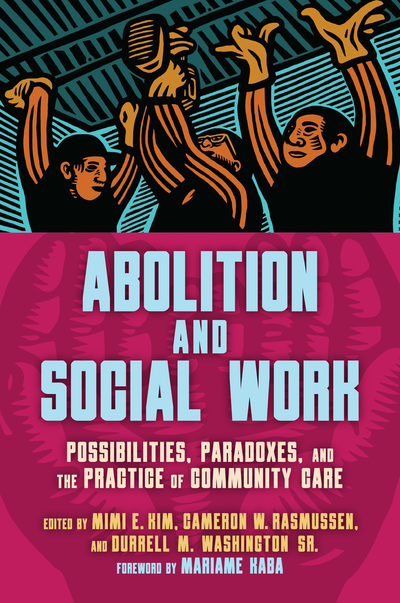Virtual Book Talk: Abolition and Social Work

Join a virtual discussion with the editors of Haymarket Book’s popular new title Abolition and Social Work: Possibilities, Paradoxes, and the Practice of Community Care, hosted by University of Michigan students, staff, and faculty. This book is “a critical anthology exploring the debates, conundrums, and promising practices around abolition and social work in academia and within impacted communities. Within social work—a profession that has often been complicit in the building and sustaining of the carceral state—abolitionist thinking, movement-building, and radical praxis are shifting the field.”
The book’s editors, Mimi E. Kim, Cameron W. Rasmussen, and Durrell M. Washington, Sr., share how they came to publish this important text and explore whether and how abolitionist principles and politics can be incorporated into social work. Throughout the chapters, the book invites readers to consider whether it is possible for social work to bolster the work of abolition, the tensions and paradoxes with abolition given the social work profession’s legacies and trajectories, and examples of social work praxis rooted in abolitionist principles.
As abolitionist organizer, educator, and curator Mariame Kaba writes in the foreword, “The promise of social work is often a carceral promise. The state and its representatives look to social workers when cops seem too violent or too expensive—when they need “someone else” to call or “somewhere else” to incarcerate people. Ida Wells-Barnett, though, and the contributors to this book, show that social work can do more than just tape some cushions to the bars. It can work to pull them down.”
Register Here

